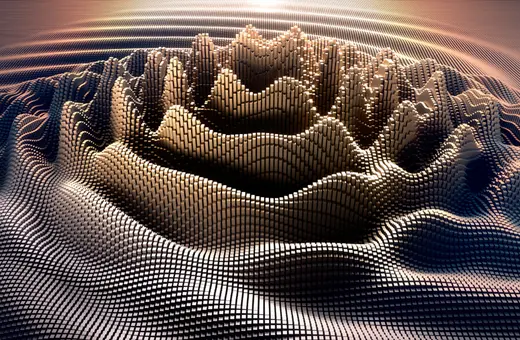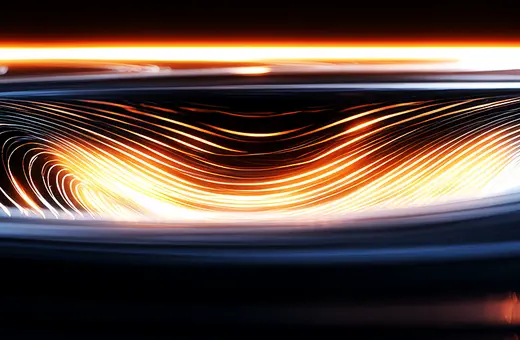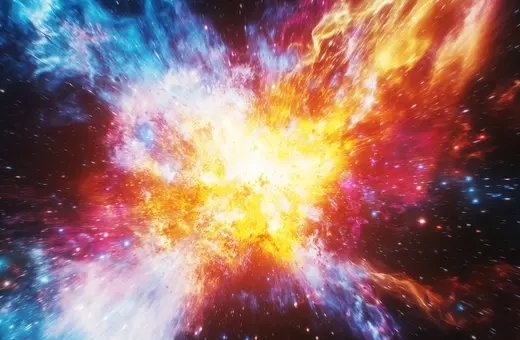We humans have repeatedly contemplated the idea of living forever in myths, fairy tales, philosophy, religion and science. More recently, however, skeptics of the benefits of eternal life have abounded. Bernard Williams famously argued that immortality would inevitably get boring. But whether or not he was right, the temporal limits of our lives – that we are born at some time, and that we die at some time – are some of our most defining characteristics. Life as we know it would be very different if it wasn’t finite in its temporal extent.
Not so for the God of Christianity. According to the Bible, God “is before all things” (Col. 1:17), and God’s “years have no end” (Ps. 102:27). God is, in a word, eternal. That’s a very different way to be from ours. And it’s not surprising that God’s relationship to time is thought to be so utterly different. After all, God is supposed to be the creator of the universe, the ultimate being that controls and watches over everything else.
But what exactly does it mean to say something or someone is eternal? One idea that has been treated kindly by philosophical and theological tradition (at least until recent times), is the idea of eternity as a timeless realm. Note that that’s not just having a life that is infinite in its temporal extent. It’s not just having lived forever and living forever (‘sempiternally’). In fact, it’s not living at any time at all; it’s living beyond time, timelessly.
___
"Einstein is often quoted as saying that for ‘us believing physicists, the distinction between the past, present, and future is only a stubbornly persistent illusion’"
___
This idea of a timeless eternity has fascinated thinkers throughout history. Already Plato contrasts the eternal forms with the created world of change and becoming. The forms can never grow older; they simply are. In many places, Plato seems to express an idea of eternity as a timeless realm, and even as timeless duration. The eternal forms are opposed to the temporal order, which is ‘the moving image of eternity’.
Boethius, an early medieval Roman philosopher for whom Plato was an important source, said that ‘eternity is the complete possession all at once of illimitable life’. Unlike a temporal being, an eternal being does not experience things one after the other. They don’t have to wait to experience more of their life. They never lose or gain anything, or indeed change in any way. They live in an eternal now. Boethius compares God’s timelessly eternal vision to that of someone standing on a hill, taking in the scenery and happenings below all at once.
Similarly, eleventh century Christian thinker Anselm thought timeless eternity, and God, exist ‘as a whole at once’. For Anselm, this follows from God’s being that than which none greater can be conceived. (Famously, he also argued that it follows from this that God exists.)
 SUGGESTED READING
Prayer for Atheists
By William Irwin
The discussion about eternity in medieval times includes not only Christian but also Jewish and Islamic thinkers. For example, the Jewish philosopher Maimonides (who greatly influenced Aquinas) thought that God’s timeless eternity ought to be understood primarily in negative terms. We can’t say what God is, but only what God is not. God’s timeless eternity is unending, lacking beginning and end, and including no before or after.
SUGGESTED READING
Prayer for Atheists
By William Irwin
The discussion about eternity in medieval times includes not only Christian but also Jewish and Islamic thinkers. For example, the Jewish philosopher Maimonides (who greatly influenced Aquinas) thought that God’s timeless eternity ought to be understood primarily in negative terms. We can’t say what God is, but only what God is not. God’s timeless eternity is unending, lacking beginning and end, and including no before or after.





















Join the conversation